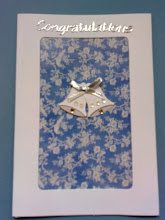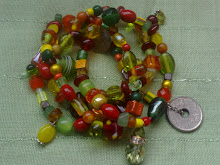The world is watching the horrific events unfold in Palestine at the moment – the death toll reported today has passed 500 with thousands leaving their home to seek refuge from Israel’s ground offensive. Muslim’s and non-Muslim’s have joined in protest, prayers, activism and charity work.
As we receive news of what is happening and discuss amongst ourselves the injustice we are witnessing, there is one more group who is interested in these events – our children. They see glimpses of the news, they overhear our discussions and they pick up parts of what is happening. Some parents will find they are asked discussions, others will hear their children talking to each other and trying to make sense what is going on.
As children, my generation could afford to be innocent and politically unaware. Although we grew up with glimpses of world events – the Sri Lankan Civil War, the later part of the IRA’s years of the Troubles, the Gulf War, the First Palestinian Intifada and the war in Bosnia, we didn't discuss these with adult and we certainly didn't understand them properly. That doesn't mean we were completely oblivious. In my school, every year we would get a number of students from whichever part of the world was imploding – Somali children in Year 7 (1990) who came via Kenya after their civil government collapsed, Bosnian children in Year 9 (1992) as civil war took hold, Sri Lankan children in Year 10 (1994) as war raged between the Sinhalese and Tamils in Sri Lanka.
We made friends with these children, we were surprised when we realised they liked the same things as - the same music and movies, and worried about the same things – boys, parents, spots. It gave us a sense of how same we are. I also remember thinking that if the Bosnian Muslims were so very like the non-Muslim’s in that country and still faced genocide, what about us who were so different to the people in this country?
Another example of where our school life intersected with events further afield was when we all had oral tests for English where we had to present a short talk on any subject. I did a spoken review of Beam Stokers Dracula, which was one of my favourite books. Some of the boys got in trouble for making up silly stories and not being very serious. One Somali girl took a deep breath and told us about the time she had hid in a wardrobe and watch soldiers burst into her house and drag her elder sister out from under a bed and rape her. You could have heard a pin drop in that class. No one knew how to react. So we dealt with the information in the only way we knew how – filing the story away in a recess of our brain for a time when we could better understand it.
The media also left its impact. The only image I have of Palestine as a child was of the first intifada – not that I knew what that was. It was a scene from a news report and showed a young man flanked by soldiers, being dragged along, with blood pouring down his face. I didn't know what happened to him afterwards or if he was seriously hurt, but the image stayed in my mind and upset me for many years.
A few years later the news was full of nothing but the Gulf war and our parents were engrossed in every bit of news they could get. None of it made sense except a general sense of injustice against Muslims which seemed to be rumbling back and forth in adult conversations and which along with the war in Bosnia and Chechnya seemed to colour the world-view of the Muslim boys I was at school with.
Over the years, the world seems to have shrunk with internet, social media, instant communication and picture and video sharing and increasing international travel. When something happens it’s everywhere instantly and we seem to be oblivious sometimes about the extent to which our children are taking these events in.
When the 3 year old British girl Madeline McCann went missing on holiday in Portugal, Little Lady was also three and was a little unnerved that Madeline had disappeared. She often asked if she had been found and I could see it bothered her. In recent years, even moreso the children are picking up on world events and asking questions – why did someone shoot Malala? Why did they kidnap school children in Nigeria (the Boko Haram)? Most difficult of all – why are they killing people in Gaza?
In this country death is very much a sanitised process – we are often protected from the pain and horror of death by hospitals that manage the pain, morgues that deal with the processing of bodies and funerals where we are presented with a body that has been tidied up as best as possible for a funeral. This makes it harder for us to deal with when we witness it whether personally or second hand and it makes it even more important than when our children see war and atrocities in the news and hear about it through the discussions happening around them that we don’t ignore the effect on them or the questions that might be on their mind.
My children occasionally watch a BBC news programme called Newsround aimed at children during their school day . It presents a simplified, somewhat sanitised version of the news to help children understand what is happening in the world (the report here on Gaza is very basic and doesn't mention any deaths or the destruction of Gaza, makes Palestinians look like aggressors and focuses on the effect on Towns in Israel). I'm not impressed with the BBC’s treatment of the Gaza crisis at the moment, but some exposure to what is happening on a child-friendly level means that when I discuss these matters with my children, they have some understanding already.
The children also often ask if anything interesting is happening in the news and we have made it a morning ritual to share and discuss a news story at breakfast with me explaining what has happened and choosing what I consider to be appropriate pictures on my phone for them to see and the children asking questions. This means they are not stuck with difficult questions which never get resolved but which leave an impression on them for a long time.
I also believe in sharing these things with my children because I want them to grow up with a feeling that they can do something to make a difference. I believe that Muslim’s by nature should be activists:
Abu Sa’eed al-Khudree (ra) said: I heard the Messenger of Allah (saw) say, “Whoso-ever of you sees an evil, let him change it with his hand; and if he is not able to do so, then [let him change it] with his tongue; and if he is not able to do so, then with his heart — and that is the weakest of faith.” ~ Muslim.
I want my children to be Muslims who speak up for others, who try to help the weak and vulnerable and who adhere to the Quranic injunction that states: “And from among you there should be a party who invite to good and enjoin what is right and forbid the wrong, and these it is that shall be successful.” (Quran 3:104).
Most recently the Gaza offensive has caught my children’s attention and they have been trying to understand what is happening. My teenage neighbour who is very close to my daughter is fundraising, everyone is discussing what is happening and family members and friends have been attending protests in the city centre. The Gaza issue is not one that is easy to explain and creates such powerful feeling and emotion that it is hard to explain to children in a rational and fair way. There is a risk of people resorting to intolerant or racist views that discourage children from thinking for themselves of taking a compassionate or peaceful approach. There is also the question of how you share the horror and carnage of the situation without traumatising them. There isn't an easy answer to this except that parents know best what their own children can handle and what might be too much information based on a child’s sensitivity, past experience and reaction.
I came across the following video about the Palestinian conflict which I shared with my children:
I felt that it stuck to the facts, tried to avoid being inflammatory and was fairly simple. It inspired anger in Little Lady and Gorgeous, but it was Little Man's reaction that surprised me. He had tears in his eyes. No dead bodies or injured children, no destroyed hospitals or orchards. The basic facts alone were enough to move him so deeply.
Since then we have discussed the situation daily. I have tried to explain that there are things that you can do and that Muslims must never feel hopeless. My brother was at a protest for Palestine and has been posting video’s of the event which I have been showing them. My sister-in-law has been promoting one of the various Gaza appeals which send you cake for your donation. The kids have had some of the cake and an explanation of why it was ordered. At iftar time, they make dua for an end to the difficulties faced by their brothers and sisters.
Our next door neighbour has been promoting her friends fund-raising attempts through Eastern Relief Foundation for Medical Aid for Palestine (both links will let you make a donation). Little Lady has been inspired by her to make loom band bracelets in the colours of the Palestinian flag to sell and has her brothers, my cousin and her classmates making them too to sell for £1 each. They are selling faster than she can get them made.
I would love to hear how other parents have been discussing (or not) these kinds of serious issues with their children, in particular what is happening in Gaza.
































No comments:
Post a Comment